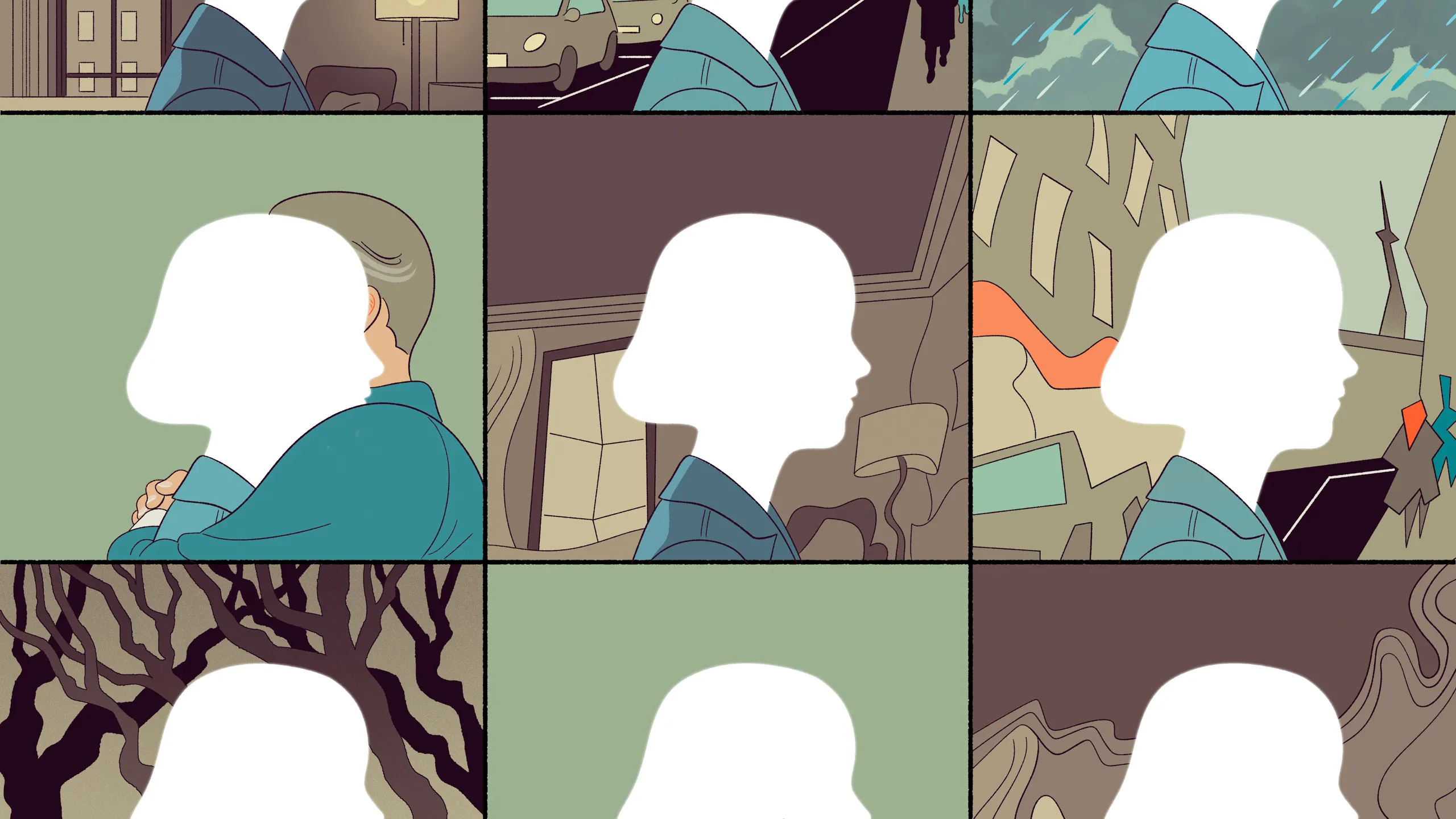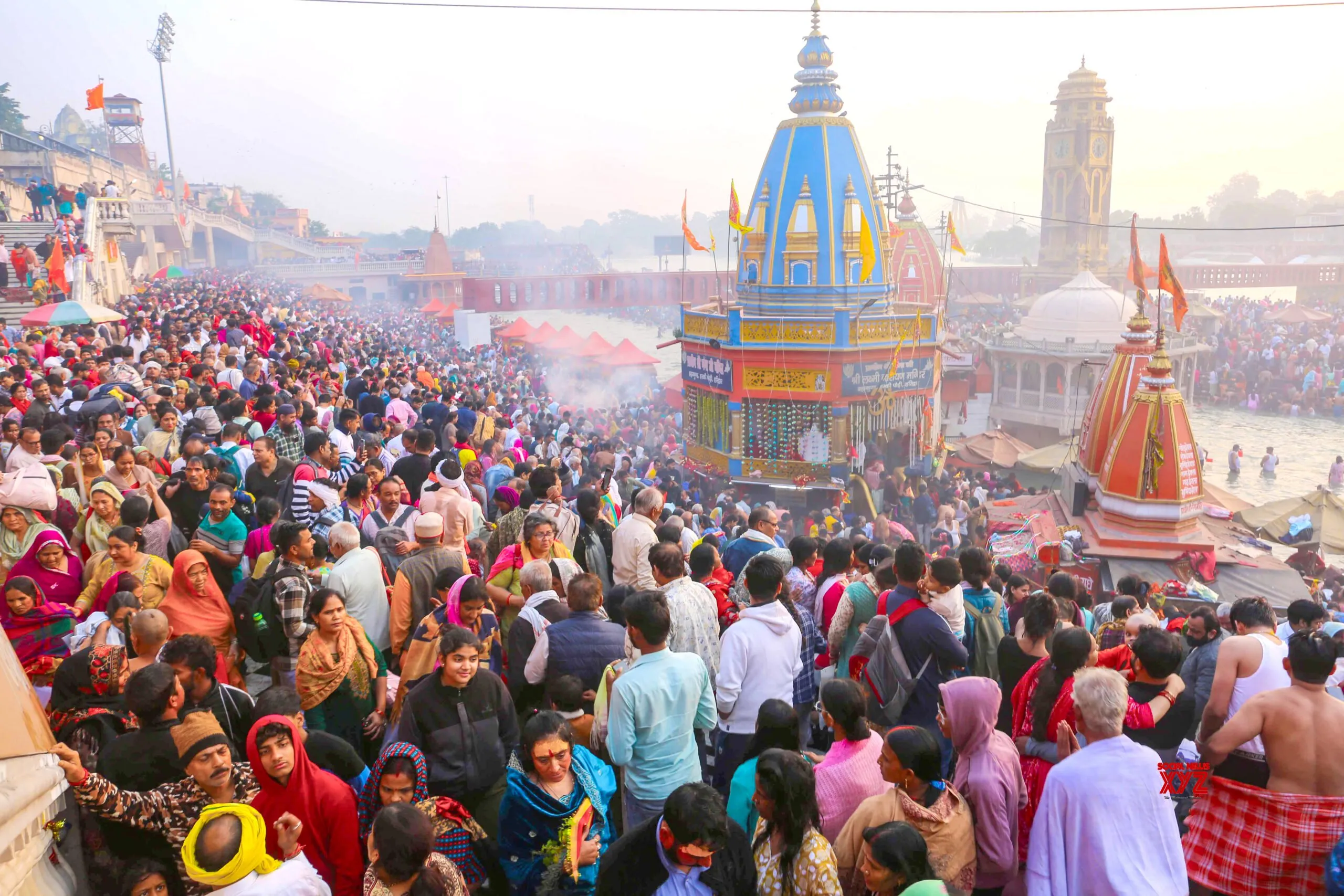Copyright newyorker

Their twosome ruptures when Tara, who has travelled to Paris for an auction, wakes up on what should be the morning of November 19th to shimmers of déjà vu: the headlines in the newspaper look familiar; at breakfast, the same hotel guest drops the same slice of bread. A horrified Tara soon realizes that she is living in a repeating November 18th, while Thomas and the rest of the world go on without her. The story, which unfolds in slim, strange installments, becomes, among other things, a parable of marital loneliness. Balle’s time loop operates according to inscrutable rules: although Tara’s day refreshes, her body continues to age and her geographical location can change. Certain objects that she acquires, such as a toothbrush, stay with her, whereas others disappear overnight. When Tara first returns home to Clairon, she and Thomas orbit each other in their bucolic cottage, and she observes him with a keen tenderness, listening for his gentle thuds on the floorboards. On some days, Tara lets her husband in on her predicament; on others, she trails him like a shadow. The strategy she chooses makes no difference. Every morning, his memory resets. Balle’s series has grown into a cult hit, both in Scandinavia, where the first five of a planned seven books have been released in the original Danish, and, more recently, in the U.S., where New Directions has published English translations of Books I through III. (Barbara Haveland rendered the first two; Sophia Hersi Smith and Jennifer Russell deliver the third, out this month.) The novels, composed of Tara’s diary entries, meld metaphysical inquiry with an intimate attention to the natural world and the domestic sphere. Balle’s prose—repetitive, hypnotic, and as balanced as a small plane—sustains an atmosphere of illuminated ordinariness. Here is “a drawer being opened, wood sliding across wood.” There, a light drizzle builds into rain “bucketing down.” The effect of the time-loop device is propulsive yet lulling: the premise grabs us with its gimmickry, then it amplifies the motions and textures that we already know. Under the magnifying lens of Balle’s conceit, marriage appears hyperreal, a peaceable yet doomed circuit of pleasant meals, purposeful silences, and household routines that fall gradually out of synch. To Tara, Thomas dwindles to the sounds he makes when carrying his teacup up and down the stairs. On day three hundred and thirty-nine, when Tara implores him to join her on a trip to Paris, a familiar impasse turns strikingly literal: “He didn’t want to go with me. He wanted to stay in his pattern.” Eventually, despite their best efforts—the pair movingly tries to merge their time lines over long nights spent awake together—Tara leaves her house and her husband behind.“Too many days had come between us,” she says. Upon entering the time loop, Tara cycles restlessly through phases and responses, trying to decide how to use the days. First, she wills herself and Thomas into a sweet somnolence—“we made the horizon vanish,” she writes—and then she craves clarity, drawing up tables and charts. She can’t decide whether to keep up her diary. On day one hundred and eighty-five, she supposes that “sentences are not necessary.” On day one hundred and eighty-six, she doubles back: “But if sentences are not necessary why do I sit down at the table and write?” Her life becomes periodized, with stretches spent in Bremen and Düsseldorf. An antique coin that she bought for Thomas on the original November 18th becomes a talisman, vanishing from the time line and then resurfacing. The artifact fuels Tara’s fleeting but intense fascination with ancient Rome. She confesses that she never cared much for history in the sense of grand thematic arcs. She’s drawn to old things for their voluptuous qualities: “the slow flick-flick when you leaf through thick pages, the whisper of thin paper, a gilt edge and the split second’s resistance as the gilding leaves the fingertip.” She becomes an expert in wine production and olive harvests, in grain storage and women’s hair styles—fixations that evince her new interest in what makes ephemeral lives persist in time. Is it the headiness of military campaigns and imperial dramas? Or is it the past’s tangible detritus: “plates and jars . . . a glass cup . . . wood for the ovens”? Inside November 18th, Tara’s sense of time transforms into something stern and architectural, less a conveyor belt than a mausoleum. “Everything in the Roman world is a container,” she declares, thinking of the amphoras and cauldrons and woven baskets. Later, she reflects, “I had landed in the vast container of history. It was overflowing with things.” This claustral existence would seem to suit Tara; the novels distinguish her via her eye for detail, placing her in a coterie of alienated, observant female narrators who drift through recent fiction. Such a person might embrace an eternity in which to marvel at the etchings on a Roman coin, or the weight of a leek. But Tara’s sensualism also isolates her, emphasizing the narrowness of a life crammed with dead things. Near the end of the first book, Tara wonders whether her material connoisseurship has put her at odds with the world she loves. She notices that her groceries, unlike the foods that Thomas eats, don’t replenish when a new day begins. She is disturbed by the sight of “shelves growing barer and barer,” resolving to eat expired goods that nobody will miss. Here, the time-loop metaphor reinvents itself as an environmental allegory: Tara’s loss, and the book’s ambient melancholy, may be her fault. Her journal entries turn despairing and remorseful, colored by moral outrage. “I have become a ravening monster,” she writes. “A swarm of locusts. How long can my little world endure me?” “He knows we’re using up the world,” Tara writes, of Henry. “He’s seen it too, the empty shelves.” But, she notes, “he believes my urge to eat garbage is an overreaction.” Whereas Balle’s first two books are inward and meditative, her third witnesses an eruption of politics. Or perhaps a constructive metaphor is better—a social order starts to creak into place. The pair spars at first: Henry condescendingly surmises that Tara must feel “excluded from historical accounts since they had never been written by women, for women,” while Tara can’t fathom “why he wanted to split the world in two.” But she takes pleasure in arguing with him. That night, Tara tells Henry that she is “glad to have found a playmate in the eighteenth of November.” Tara’s eviction from the human time line initially affords her space for an irradiated everyday, and a sprawling, shape-shifting consciousness. “A fluctuating mood is rather like a dance, it really swings, even though there isn’t much room,” she proposes on day one hundred and twenty-nine. In the third novel, she discovers a comparable delight in other people. With Henry’s arrival, Tara gains an identity in the contemporary sense—a gender, a particular disposition toward the world that is legible through her speech and actions. She may be more constrained and finely drawn than before, but she welcomes feeling anchored. “We each have our role to play,” she says. The book’s social ecosystem doubles when Tara and Henry encounter a second pair of November eighteenthers—Olga, a steely seventeen-year-old, and Ralf, an I.T. programmer for a logistics firm. Full of youthful idealism, Olga and Ralf believe that they’ve been trapped in time in order to save the world. But they can’t agree on how. Olga insists that “the foundation itself” must change—the imprecision of her vision gently amuses Tara—whereas Ralf wants to focus on preventing the “constant stream” of daily tragedies that he now knows about in advance: car crashes, falling roof tiles, rickety scaffolding. Olga accuses Ralf of seeking to treat symptoms instead of root causes; Ralf maintains that individual lives and deaths are more than “mere symptoms.” Their well-meaning conversations, unfolding in a temporal deadlock, echo our own political stalemate. At one point, Henry tries to restore consensus by suggesting that such disagreements are simply a matter of age. Olga retorts that his bird’s-eye analysis is a clever way of doing nothing. Meanwhile, she says, “Tara just gazes out of windows, thinking about love.” The line prickles with self-critique, as if Balle were mocking her own philosophizing and inturned romanticism. Why did Tara spend hundreds of days contemplating Thomas, hair styles, loneliness? Why didn’t it occur to her that she might be able to help people? Together, the foursome appoints themselves custodians of their world: they monitor their food intake, hold interminable meetings about “trash and things,” and scan the news for preventable misfortune, hoping to reduce suffering for November 19th. They won’t be there, but they care anyway. Balle, who studied philosophy at the University of Copenhagen, may be flirting with the work of Derek Parfit, who found solace in the self’s impermanence. For Parfit, meaning grew out of transcendent moral imperatives rather than individual lives. But Tara is reinvigorated by her closely realized relationships with Henry, Olga, and Ralf—“a strange bunch inside a container of time,” by her description. The provisional nature of this society mirrors an improvisatory quality in the books, with their changing casts of characters and fluid metaphors. Balle’s protean impulse—her constant rewiring of thematic attachments—makes our reading experience varied and rich. Equally rich experiences, one suspects, might result from breaking more egoistic attachments, from “severing ties with the past and charting an entirely new course.” It’s a philosophical experiment illuminated by a novelist’s sensuous and humane way of looking. What if you relinquished the idea that the future was yours? What might you start to see? ♦



